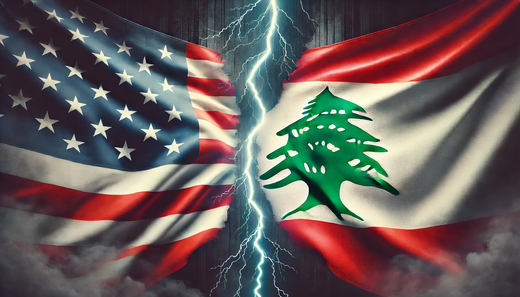
Trump Threatens Hezbollah: What Could Happen if the U.S. Takes Action?
Share
Trump Threatens Hezbollah: What Could Happen if the U.S. Takes Action?
In a bold and provocative statement, former U.S. President Donald J. Trump recently warned Hezbollah, a powerful militant group based in Lebanon, that "all hell will break loose" if they do not release hostages. This escalatory rhetoric raises critical questions about the potential ramifications of a U.S. attack on Hezbollah. With the Middle East already a geopolitical powder keg, any such action could have significant and far-reaching consequences.

Immediate Reactions to a U.S. Attack
1. Hezbollah's Retaliation
Hezbollah, widely regarded as one of the most formidable non-state actors in the world, would likely retaliate swiftly. The group possesses an extensive arsenal, including tens of thousands of rockets and missiles capable of striking Israel and U.S. assets in the region. Furthermore, Hezbollah could activate sleeper cells or allied groups to conduct asymmetric attacks globally, targeting American and allied interests.

2. Regional Escalation
An attack on Hezbollah would almost certainly destabilize Lebanon, a country already grappling with severe economic and political crises. The conflict could draw in neighboring countries, particularly Israel, leading to a broader regional confrontation. The Israel-Lebanon border, often tense, could become a significant flashpoint.

Broader Geopolitical Implications
3. Iran's Response
Hezbollah’s deep ties to Iran mean that Tehran would view a U.S. attack as an assault on its interests. Iran could retaliate by ramping up support for its proxies across the Middle East, such as in Iraq, Syria, and Yemen. Additionally, Iran might escalate tensions in critical areas like the Strait of Hormuz, a chokepoint for global oil shipments, creating economic ripple effects worldwide.
4. Involvement of Other Powers
Global superpowers like Russia and China could exploit the situation to criticize the United States and expand their influence in the Middle East. Meanwhile, European allies may urge restraint, fearing that a wider conflict would result in another wave of instability and migration.
Domestic and Global Consequences
5. Humanitarian Impact
Lebanon’s already dire humanitarian situation would worsen considerably. Civilian casualties and infrastructure damage could displace thousands, further straining international aid organizations.
6. Challenges for the U.S.
A direct conflict with Hezbollah would demand significant military resources, potentially overextending U.S. forces already engaged in other global hotspots. Domestically, the move could ignite heated debates over its justification and strategic viability.
7. Global Terrorism
A U.S. attack on Hezbollah could inspire retaliatory actions, fueling a surge in terrorist activities against American and allied targets worldwide. Such a scenario would heighten security concerns and complicate counterterrorism efforts.
Likely Outcomes
Given Hezbollah’s guerrilla tactics and integration into Lebanese society, a military engagement would likely result in a prolonged and costly conflict. International actors, including the United Nations and key diplomatic players, would likely push for immediate ceasefire negotiations to prevent further destabilization of the Middle East.
Moreover, a conflict of this magnitude could shift regional alliances. Countries like Iraq, Syria, and even Turkey might recalibrate their positions, further complicating the geopolitical landscape.
Conclusion
While the United States has unparalleled military capabilities, the strategic and humanitarian costs of direct conflict with Hezbollah could be immense. History has shown that military action in the Middle East often leads to unintended consequences, exacerbating instability rather than resolving it. As tensions rise, diplomacy and multilateral efforts may prove to be the most effective means of addressing the situation, ensuring that the region does not spiral further into chaos.
The world waits to see if these threats are mere posturing or a harbinger of a new and dangerous chapter in Middle Eastern geopolitics. Whatever the case, the stakes are high, and the consequences could shape the region’s future for years to come.